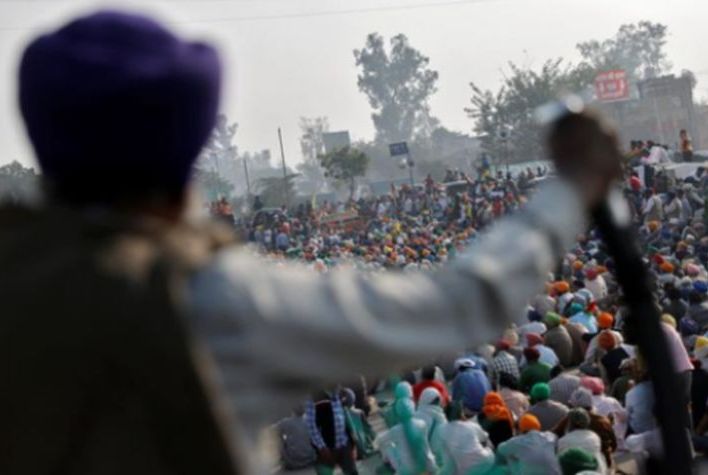Sometimes ignoring an issue turns out to be a good government strategy. The indifference helps the government buy time and let the issue run its course and die down sooner or later. The Centre seems to have adopted this strategy to deal with the farmers’ agitation against the three farm laws. There is complete silence on the government’s part since the last round of talks between the farmer unions and the Centre were held on January 22, four days before the tractor parade, which ended in chaos and violence at Red Fort in Delhi. The government remains unmoved when farmers continue to commit suicide after having been frustrated over its dogged refusal to concede the demand for repeal of the laws. Till date, 270 farmers have died over the issue. Farmers’ basic human rights have been trampled upon and basic facilities denied. Instead of listening to them, the government has chosen to ignore them with cynical unconcern.
But, this strategy seems like it is not going to work since the government has already engaged in protracted and fruitless negotiations creating the impression that it wanted to listen to the farmers. When it found the farmers’ agitation had gained traction not only inside the country, but also abroad, it followed a two-pronged strategy. Both were ill-conceived and result of a knee-jerk reaction. It sought to crush the agitation through repressive measures and imputing criminal, anti-national motives to it. Then it tried to threaten action even against foreign protesters against government excesses on the agitating farmers and those, including a section of the media, sympathetic to the farmers’ cause. The government has only succeeded in internationalising the issue when its intent was to keep the issue within the country.
Apparently, the government was breathing somewhat easy, when its action of slapping the harsh sedition charge and arrest of vocal supporters of the agitation pushed the burning issue out of the front page media headlines. Voices of international protest also appeared to have been muffled.
That the government misread the situation became clear on March 8 when the issue was raised in the British parliament with full vigour and to the consternation of the Indian foreign service establishment. The debate was held in response to an e-petition which had crossed the 100,000-signature threshold, required for it to be approved by the House of Commons Petitions Committee.
Obviously, it wasn’t music to the ears of the Indian government. The Indian High Commission in London made its displeasure known despite the British government earlier iterating that the three farm laws were a “domestic matter”. It condemned the debate among British lawmakers over the right for peaceful protests and freedom of the press in India amid the ongoing farmers’ stir.
The High Commission slammed the debate terming it “distinctly one-sided discussion.” It regretted aspersions had been cast on the “largest functioning democracy in the world and its institutions” instead of holding a “balanced debate”. In its opinion false assertions were made without “substantiation or facts.” The High Commission also reminded the British government that India and the UK together work as a force for good in the UN Security Council and bilateral cooperation between the two countries helps fix many global problems. It lamented that a false narrative over farmers’ protest was sought to be developed even though the High Commission of India had been, over a period of time, taking care to inform all concerned about the issues raised in the petition.
The High Commission’s pro-forma reaction once again showed how the Indian foreign service is cutting a sorry figure on the global stage on the farmers’ issue. It shows the country in a wrong light to try to silence foreign governments and legislators articulating their stand on the issue that has transcended India’s geographical borders because of the government’s own style of inept handling. For, the Foreign, Commonwealth and Development Office (FCDO) Minister Nigel Adams said during the parliamentary debate the close UK-India relationship did not hinder the UK in any way from raising difficult issues with India. He felt it was a time of “great ambition for the UK’s relationship with India” when both governments working to advance shared priorities across trade and investment, health, sustainability, climate change, defence and security can help fix global problems.
He hoped that candid discussions on a range of issues will put Boris Johnson in the right frame of mind when he visits India in the near future.
Apart from handling the farm bill generated crisis, the government has landed itself in another ticklish situation by trying to disown the Overseas Citizens of India (OCI) status it had so very excitedly bestowed on some people that it had considered would stand by the roadside and loudly applaud whatever it is that the government did internally. Reality does not seem to have turned out that rosy.
